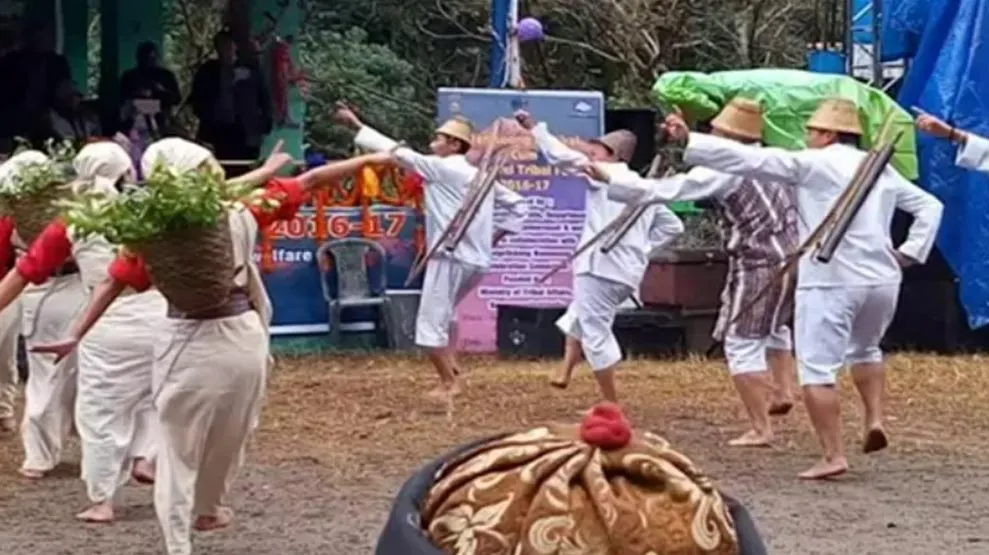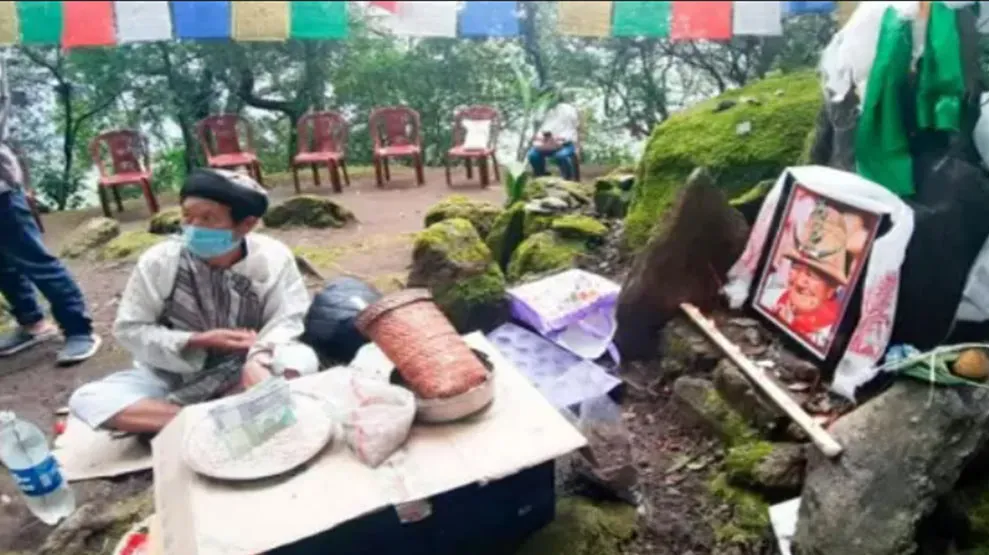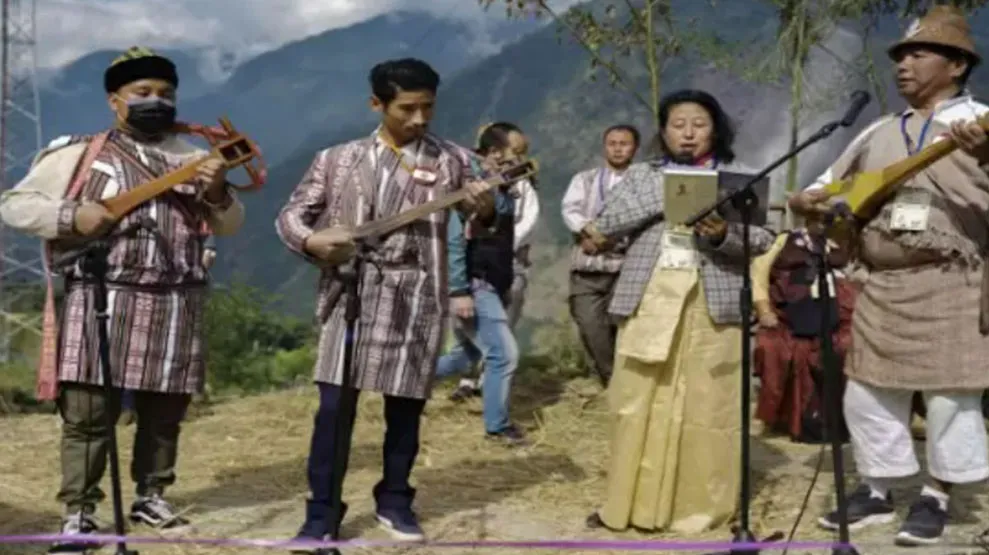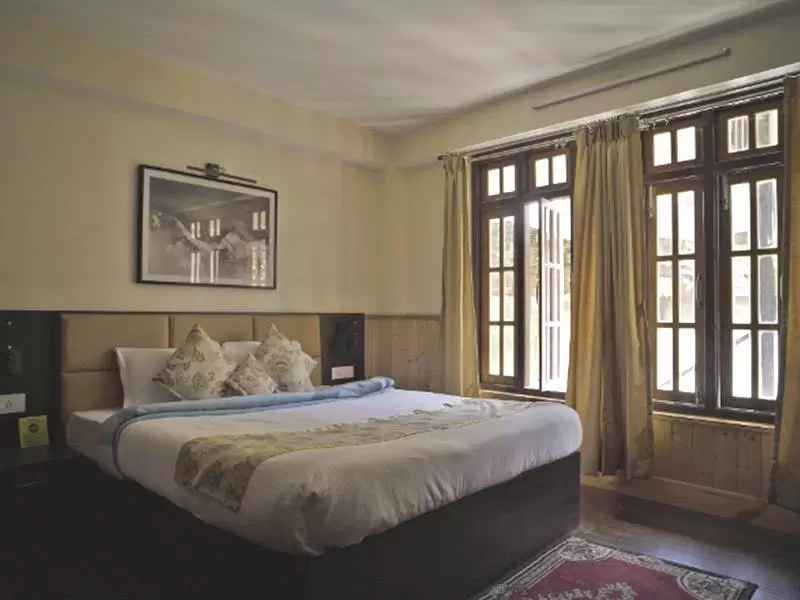


The word Dzongu means nine districts, the Dzongu region is covered with different mountain peaks along with the slope valleys and dense forest. Since time immemorial the Lepcha people relied on the forest resources in order to survive, they also had deep understanding of plants and animals which were found in their region. Most of the Lepcha people also regard Dzongu region as being sacred land and compare it with having equally importance with that of the Mayel Lyang (a mythical land located somewhere at the base of Mount Khangchendzonga). There is also common belief among the Lepchas that after they die their soul will enter Mayel Lyang.
The people of Dzongu
Sotak Rum Faat- It is the festival where special prayers are offered to gods to avoid hails in March-April for protecting the orange buds and flowers. This festival takes place in the month of Jan/February.

Che Rum Faat- This is a springtime festival in which prayers are offered to Mt. Kanchendzonga, to keep out and protect the locals from diseases which are normally associated with summers. Lots of chicken and eggs are offered as sacrifices during this festival and only white flowers are offered during this puja. This festival takes place during the month of March.
Tarok- it is a puja offered by the woman folk asking for forgiveness for sacrificing chicken during CheRumFaat.

Sum Purtan Rum Faat- It is similar to Che Rum Faat except this festival takes place in villages around kyong Rong Chu of Passingdang, Mantam, Kayem and Lingdem. In this festival, locals offer prayers of gratitude & thank the protective deity Mt Khangchendzonga for its benevolence and protection. The festival takes place during the month of May/June.
Chu Rum Faat- It is a festival which offers prayers to all mountain Gods. The festival takes place during the months of Aug/ Sept.

Punjuk Rum Faat- This is a very special festival where individual clans offer prayers to Gods of forest. Prayers are offered to Gods for good gathering of medicinal herbs, roots, tubers and meats/fish. During this festival, prayers are also offered so that hunters do not see their friends as animals and shoot them by mistake. This festival takes place during the month of October.
Song Bring- It is a festival where the people of Lingdem Upper Dzongu will celebrate the festival with great enthusiasm. They perform different kinds of cultural dance. They do different kinds of competitions.
Namsong- This festival is for celebrating and bringing in the New Year. Festival usually takes place during the month of November/ December with prayers offered to all Gods (Lakes, Mountains, Rivers, and other Natural elements) followed by festivities, local games and competitions and feasts. In the olden days, cherry Blossoms were an indication that the Namsong festival was just a month away.

PADDY HARVEST FESTIVAL IN DZONGU

The residents of Lingthem village in Dzongu, North Sikkim are all geared up to host the first “zero-waste” Dzo-Tyuim harvest festival from November 12 to 14.
The three-day long festival organized by locals from Dzongu in association with the Forest department and Homestay Association of Sikkim (HAS) will have indigenous food, cultural programmes and plays along with other activities. The festival will also have a special unplugged session by renowned Lepcha band Sofiyum and other local artistes from Dzongu.
The main objective of the festival is to promote village tourism in order to generate an economy for local people of Dzongu and also aim to promote the handful of Dzongu homestays, run by the locals and promote the idea of homestays that would add up in generating economy.
This festival will be more community driven than glitz and glamor. The aim of the festival is to promote indigenous food, culture and tradition of the Lepcha community .
The festival is about promoting indigenous food since people have not yet explored Lepcha cuisine, followed by promotion and conservation of Lepcha folklores and folktales. This festival also targets to revive the economy in Dzongu where farmers have been hit by the pandemic. On the tourism aspect, despite the rapid flow of tourists in the State, Dzongu witnessed only few visitors. They only have few homestays here through which they want to bring model and quality tourism here where visitors can enjoy rural Sikkimese life. Dzongu harvest festival has no plastic and packaged food items or drinks allowed and will have only local foods, drinks and products.This mainly aims to revive and get back to our roots through this festival. Alongside generating revenue for the locals, and also want visitors to explore the unexplored Dzongu.
Dzongu is not only a unique place in Sikkim but it is also the place for people who seek interesting stories and who also want to experience their way of life. You can visit Dzongu if you want to experience all these interesting festivals.
Recommended Stays in Dzongu:
Munlom Nature Resort : Average Tariff - Rs 4000 per night including dinner and breakfast

Munlom Nature resort is located in Gyathang, a village in lower Dzongu at an altitude of 5100 ft. The property is constructed of materials all locally sourced with a minimal environmental footprint. Careful measures were taken to ensure utilization of local human resource and traditional building techniques, many of which are largely being forgotten. This is a location far from the madding crowd, where you are yourself amidst the grandeur of nature. Munlom Nature Resort is the best resort in Dzongu Sikkim for families while you are on your trip with OurGuest.
Written by Pintso Gyatso: Unveiling the Hidden Gems of Northeast India:
Pintso, a native of Gangtok
For a customized Offbeat Sikkim tour experience you can contact us at +91-7669503993 or email to contact@ourguest.in




